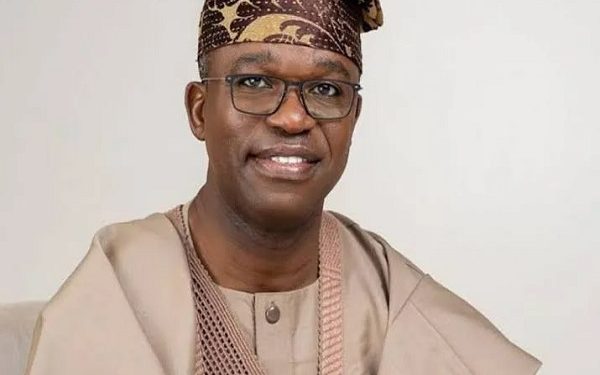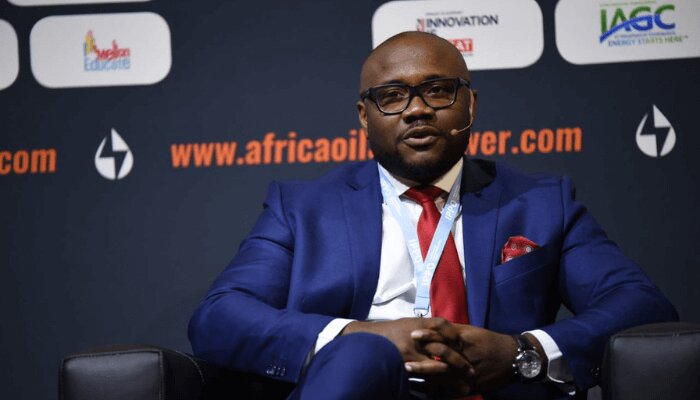The Nigerian Senate has advanced the Factoring, Assignments, and Receivables Financing Bill, which scaled its second reading on Thursday. The bill is designed to enable Nigeria to integrate into the €2.6 trillion global factoring market, a move that could have significant implications for micro, small, and medium enterprises (MSMEs) in the country.
Senator Mukhail Adetokunbo Abiru, Chairman of the Senate Committee on Banking, Insurance, and Other Financial Institutions, sponsored the bill. He emphasized that the legislation presents one of the best opportunities to introduce something innovative and impactful into the regulatory environment for MSMEs in Nigeria. According to Abiru, the passage of the bill will promote a suitable legal framework to support the rapid development of factoring services in the country.
Abiru also noted that factoring is a global financing mechanism, which helps companies improve their cash flows and manage credit better. “The bill is not just about improving the regulatory landscape for MSMEs, but also about positioning Nigeria to tap into the global factoring market, valued at €2.6 trillion,” he said. Abiru added that despite the growing prominence of factoring globally and in Africa, Nigeria has yet to harness this financial tool. He pointed out that in 2017, Africa accounted for less than 1% of global factoring volumes, with countries like South Africa, Tunisia, Morocco, Egypt, Mauritius, and Kenya leading the continent’s efforts.
The bill, according to Abiru, would be a critical step in helping Nigeria take advantage of the African factoring market, which is currently valued at over €41.8 billion and is expected to reach €50 billion by 2025. “This would go a long way in closing the trade and MSMEs finance gap in the country,” Abiru stressed.
Factoring has gained widespread recognition as a financing tool that can help MSMEs improve their competitiveness, especially in structured trade finance. “In Nigeria, for instance, the Central Bank of Nigeria (CBN) recognizes debt factoring as one of the permissible activities of finance companies, while the Nigerian Export Promotion Council (NEPC) has introduced factoring and forfeiting as instruments to finance export and trade,” Abiru explained.
He further explained that by establishing a regulatory framework for factoring services, the bill would create an enabling environment for this alternative financing method to thrive. “The NEPC’s efforts aim to boost the volume of exports from Nigeria, and this bill is in line with those objectives,” Abiru stated.
The senator reassured his colleagues that the bill has no financial implications and meets all the requirements under the Senate Standing Orders of 2023. He urged fellow senators to support the bill, which was subsequently referred to the Senate Committee for public hearing after its second reading.
Government Reaffirms Private Sector Partnership for Economic Growth
In another development, the Federal Government has reaffirmed its commitment to working closely with the private sector to achieve the eight priority areas laid out in the administration’s economic agenda. Speaking at the Nigerian Economic Summit (NES#30) held in Abuja, Vice President Kashim Shettima, represented by the Minister of Budget and Economic Planning, Senator Abubakar Atiku Bagudu, highlighted the importance of public-private partnerships in driving the country’s economic development.
Shettima noted that since the inception of the current administration, the government has understood the critical role of the private sector in fostering economic growth. “The partnership with the private sector is essential for driving the country’s economic growth and development,” Shettima said. He emphasized that the Nigerian Economic Summit has been instrumental in facilitating meaningful conversations among leaders in the public, private, and civil society sectors.
“Over the last three days, we have created an environment of mutual respect and dialogue. This understanding has informed our engagement with the Summit process, which has generated many policy recommendations for government action,” Shettima added.
The Vice President assured the audience that the administration is committed to implementing the recommendations arising from the summit, particularly as they relate to the eight priority areas outlined in the Renewed Hope Agenda. The government’s strategy for repositioning the economy focuses on macroeconomic stability, growth, and development, and Shettima emphasized that success requires the collective support of all Nigerians.
NESG Chairman Calls for Private Sector Investment
Niyi Yusuf, Chairman of the Nigerian Economic Summit Group (NESG), underscored key takeaways from the summit. He acknowledged the difficult economic times Nigeria is facing but stressed the importance of perseverance and long-term thinking. Yusuf noted that private sector capital, especially on the African continent, presents significant opportunities for development.
“There is huge private sector capital on the continent, waiting for governments to tap into for development. Opportunities extend beyond Nigeria, as the country has signed onto the African Continental Free Trade Agreement (AfCFTA), which opens up a market of over four billion people,” Yusuf said.
House of Representatives Pushes for Procurement Reform
Meanwhile, the House of Representatives has called for an urgent upward review of the budgetary allocation to the Bureau of Public Procurement (BPP). The call aims to ensure effective, efficient, and transparent service procurement in Nigeria. The House urged the Federal Government, through the Ministry of Budget and Economic Planning, to review the BPP’s budget in subsequent estimates to enable the agency to discharge its mandate effectively.
The move followed a motion of urgent national importance presented by Hon. Unyime Idem, who argued that public procurement needs to be more transparent, competitive, cost-effective, and professional. He explained that the Public Procurement Act of 2007 established the BPP as the regulatory authority responsible for monitoring and overseeing public procurement across the country. However, the agency faces financial constraints in executing its mandate.
The House noted that the BPP oversees more than 800 Ministries, Departments, and Agencies (MDAs), but its current budget of N2.2 billion is inadequate for the scope of work required, particularly with procurement irregularities accounting for over 70% of corruption in the public sector. Lawmakers emphasized the need for stronger oversight and monitoring of procurement processes across the six geopolitical zones of Nigeria.
The House directed its Committee on Public Procurement to conduct a thorough oversight of the BPP and report back within four weeks with recommendations for further legislative action.
The calls for procurement reform are part of broader efforts to tackle corruption and improve efficiency in public spending, both of which are key to achieving Nigeria’s development goals.










